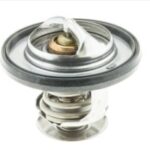Coughing is a natural and essential reflex that helps your body clear irritants and secretions from your airways. However, persistent coughing can be disruptive and uncomfortable. This article explores various strategies on How To Stop Coughing So Much, focusing on both immediate relief and long-term prevention.
It’s important to understand that coughing serves a purpose – it’s your body’s way of protecting itself. However, when a cough becomes chronic or excessive, it’s time to take action. Let’s delve into some proven methods to soothe your throat and quiet that cough.
Understanding the Root Cause of Your Cough
Before diving into remedies, it’s crucial to identify the underlying cause of your cough. Common culprits include:
- Viral Infections: Colds and flu are frequent causes of coughing.
- Allergies: Allergic reactions can trigger inflammation and coughing.
- Acid Reflux (GERD): Stomach acid flowing back into the esophagus can irritate the throat.
- Asthma: Coughing is a common symptom of asthma, often accompanied by wheezing.
- Environmental Irritants: Smoke, dust, and pollutants can irritate the airways.
- Medications: Certain medications, like ACE inhibitors for high blood pressure, can cause a cough as a side effect.
Addressing the underlying cause is the most effective way to stop a cough in the long run.
Immediate Relief: Soothing a Troublesome Cough
When you’re battling a coughing fit, these methods can provide quick relief:
- Stay Hydrated: Drinking plenty of fluids is essential. Water, juice, and herbal teas help thin mucus, making it easier to clear from your airways. Dehydration can also trigger histamine release, leading to increased mucus production and coughing.
Alt text: Hydration is key to cough relief, shown with a glass of water being poured.
-
Honey Power: Honey is a natural cough suppressant and soother. Studies have shown it to be as effective as over-the-counter cough medicines, especially for nighttime coughs. Take a tablespoon of honey as needed or add it to warm tea. Important: Do not give honey to infants under one year old due to the risk of botulism.
-
Warm Beverages: Hot liquids can alleviate cold symptoms, including coughing. The heat helps to reduce congestion and soothe irritated airways. Consider chamomile tea for its calming properties, or ginger tea, as ginger can relax airway muscles. Steep chopped ginger in boiling water for 5-10 minutes, then strain before drinking.
Alt text: Aromatic ginger tea steams, a soothing remedy for coughs.
-
Steam Inhalation: Inhaling steam can loosen congestion and ease coughing. Take a hot shower or use a humidifier. Be cautious with steam to avoid burns, especially with children. You can also add a few drops of eucalyptus or peppermint oil to the water for added relief.
-
Over-the-Counter (OTC) Medications: Consider using OTC cough medicines, such as expectorants (to loosen mucus) or cough suppressants (to reduce the urge to cough). Decongestants can also help if your cough is caused by postnasal drip. Always follow the instructions on the label and consult with a healthcare professional if you have any concerns.
Long-Term Strategies: Preventing Excessive Coughing
In addition to immediate relief, focusing on long-term strategies is essential for preventing excessive coughing.
- Allergy Management: If allergies are triggering your cough, identify and avoid allergens. Use air purifiers, wash bedding frequently, and consider allergy medications.
- Acid Reflux Control: Manage acid reflux by avoiding trigger foods (spicy, fatty, acidic), eating smaller meals, and not lying down immediately after eating. Over-the-counter antacids or prescription medications can also help.
- Quit Smoking: Smoking is a major irritant to the airways and a leading cause of chronic cough. Quitting smoking is one of the best things you can do for your overall health and to reduce coughing.
- Avoid Irritants: Minimize exposure to smoke, dust, and other environmental irritants. Use air filters in your home and wear a mask when necessary.
- Maintain Good Hygiene: Frequent handwashing can prevent the spread of respiratory infections, reducing the risk of cough.
- Humidify Your Home: Dry air can irritate the airways, leading to coughing. Use a humidifier, especially during the winter months, to maintain optimal humidity levels.
When to See a Doctor
While many coughs can be managed with home remedies, it’s crucial to seek medical attention if you experience any of the following:
- Cough lasting more than three weeks
- Coughing up blood
- Difficulty breathing or shortness of breath
- Chest pain
- Fever
- Unexplained weight loss
- Weakness
These symptoms may indicate a more serious underlying condition that requires medical treatment.
Conclusion
Learning how to stop coughing so much involves a combination of addressing the underlying cause, implementing immediate relief strategies, and adopting long-term preventative measures. By understanding the triggers of your cough and taking appropriate action, you can find relief and improve your overall well-being. Remember to consult with a healthcare professional if your cough persists or worsens.
